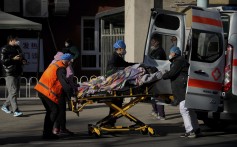Where to go for an early start
UNTIL recently, expatriate children growing up in Hong Kong had little chance to learn Chinese at international schools. Today, an increasing number of these schools expose pupils to Cantonese or Mandarin from kindergarten level, the best time to start.
Such schools are particularly popular with Chinese who have returned from abroad, but are also sought after for the children of mixed marriages and a minority of Western expatriates.
The most popular is the Chinese International School, the only school that attempts to give equal weight to English and Mandarin. But with over 300 applicants for just 75 places in its reception classes, the school has become notoriously difficult to getin to.
China must import mRNA vaccines to stop Covid-19 ‘disaster’, US health experts say
- As Beijing abandons zero-Covid, foreign jabs and antiviral medicine are key to limiting deaths, according to epidemiologists
- Without imported shots or strict mitigation measures, the country can expect up to 500,000 coronavirus-related deaths by April, says disease expert
Following its sudden withdrawal of strict Covid-19 containment measures, the Chinese government has no choice but to import mRNA vaccines and antiviral medications if it hopes to limit a looming surge in Covid-19-related deaths, according to two US-based experts.
Without lockdowns or other mitigation measures, and in the absence of mRNA vaccines, China can expect as many as 500,000 Covid-related deaths by April of next year, said Ali Mokdad, a professor at the University of Washington’s Institute for Health Metrics and Evaluation.
He said that number could be cut in half if Chinese authorities enforce proper masking, introduce lockdowns where hospitals are filled beyond 80 per cent of capacity and adopt full transparency on the number of local infections.
“Ninety-eight per cent of Americans have been infected at least once with Covid-19, and this will happen in China, but it’s going to happen in a shorter time,” said Mokdad, a former senior epidemiologist with the US Centres for Disease Control and Prevention.


